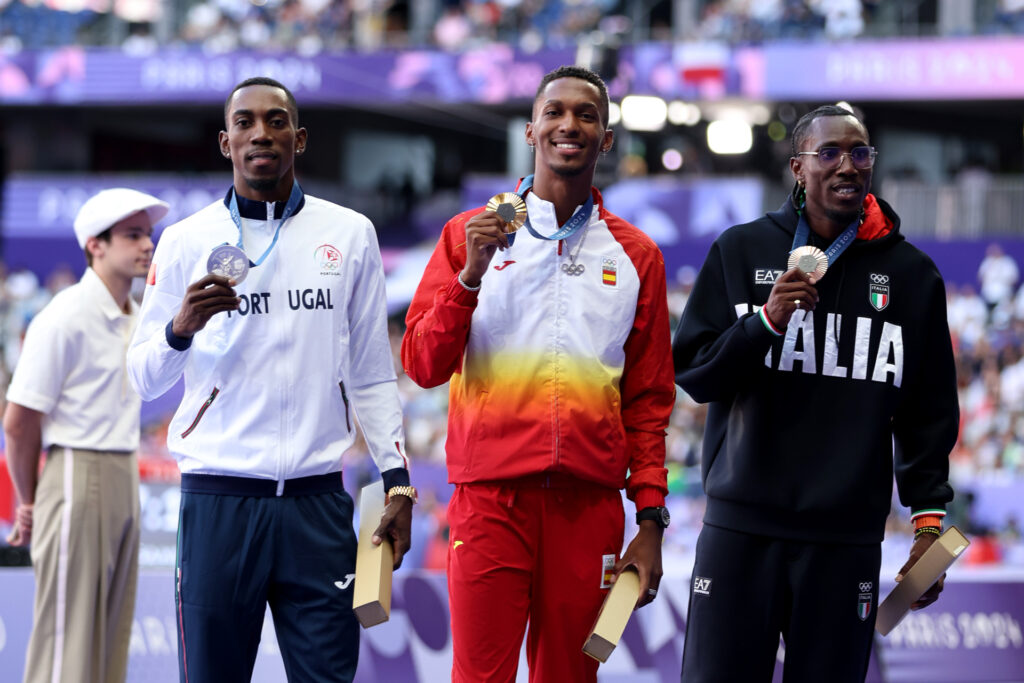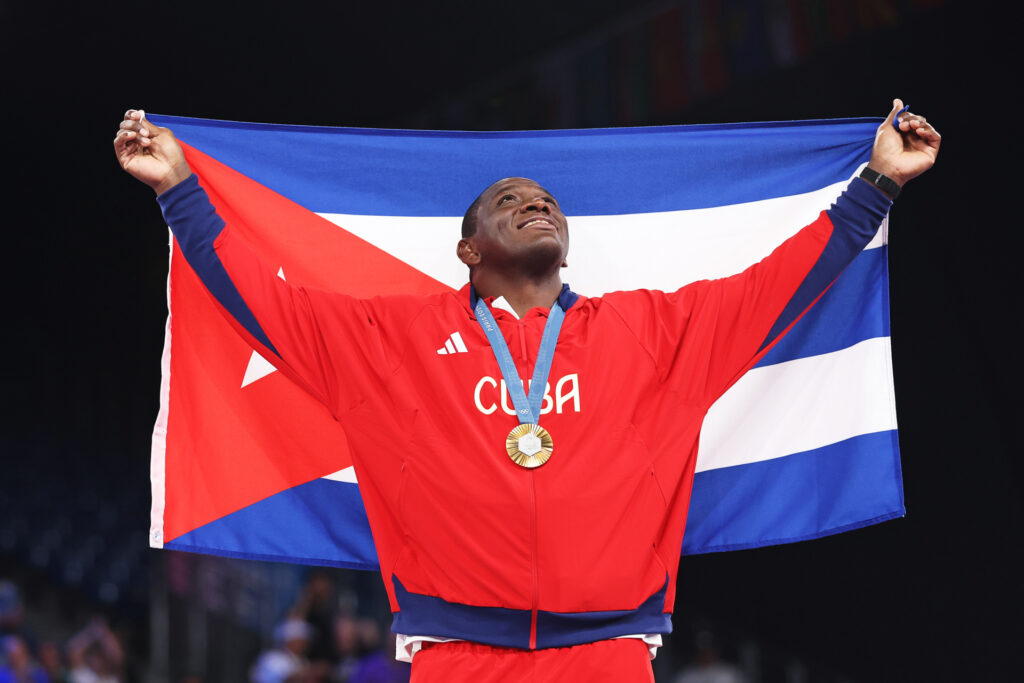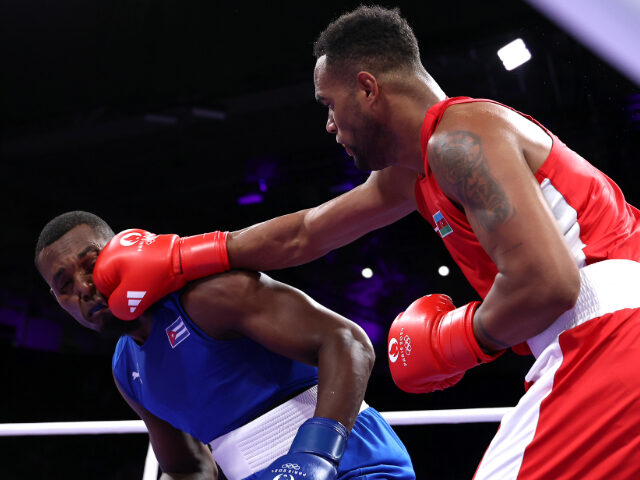State propaganda arms in communist Cuba attempted on Monday to justify a lackluster performance at the 2024 Paris Summer Olympics in which their athletes came home with nine medals — the same amount that Cuban exiles collectively won competing for other countries.
Cuban athletes won nine medals in Paris, only two of them gold, resulting in a twenty-third-place finish in total medals and tying for thirty-second in golds. The independent news outlet Cubanet observed that it was the lowest number of gold medals in a Summer Olympics for Cuba since the 1968 Mexico City games and the worst performance in total number of medals since the 1972 Munich Olympics, in which Cuba obtained eight medals. Even then, three of the medals were gold, a superior performance to that which concluded on Sunday.
In contrast, in the 2021 Tokyo Summer Games, Cuba took home 15 medals, seven of them gold.
Communist Cuba has, for decades, invested heavily in athletics as a form of global propaganda, using its champions to promote its political agenda. Its athletic programs have suffered tremendously, however, as dozens of athletes have fled into exile, seeking a better life and the opportunity to find authentic support for their work abroad. The Summer Olympics began for Cuba with a high-profile defection even before the Opening Ceremonies began, that of judoka Dayle Ojeda, a trainer who chose not to return to her lodgings in Paris.
Adding to the insult of a lamentable performance for the Cuban delegation in Paris was the outsized success of Cuban-born athletes in the exile community. Cuban journalists identified 21 Olympians at the Games born in Cuba but competing for other teams, including the unprecedented appearance of two Cubans on the Olympics’ Refugee Team. These athletes collectively won nine medals — the same number as the entire Cuban delegation despite being only about a third of the number of people Cuba sent to the Games. The number includes only athletes born in Cuba, not ethnically Cuban athletes, such as Cuban-Americans, born in other countries but part of the exile community.
Cuban exile athletes had their brightest moment in the Triple Jump competition, where they swept all three medals. jumper Jordan Díaz won gold for Spain, Pedro Pablo Pichardo won silver for Portugal, and Andy Díaz won bronze for Italy. In another notable contest, Cuban exile Loren Berto Alfonso, fighting for Azerbaijan, defeated Cuban boxer Julio César La Cruz in the early round, making it impossible for La Cruz to bring home gold. Boxing is historically Cuba’s most successful sport, and La Cruz was its flagbearer at the Opening Ceremonies.

Gold medalist Jordan Alejandro Díaz Fortun of Team Spain (C), Silver medalist Pedro Pichardo of Team Portugal (L), and Bronze medalist Andy Díaz Hernandez of Team Italy (R) celebrate after the Men’s Triple Jump on August 10, 2024, in Paris, France. (Cameron Spencer/Getty Images)
The only highlight for Cuba was the Olympic gold medal in Greco-Roman wrestling, which went to now-five-time champion Mijaín López. López is the only athlete to win gold medals in five straight games — and he had to defeat another Cuban, Yasmani Acosta, competing for Chile, to get there.

Gold medallist Mijaín López Nunez of Team Cuba celebrates after the Wrestling Men’s Greco-Roman 130kg medal ceremony on August 6, 2024 in Paris, France. (Sarah Stier/Getty Images)
López is an outspoken communist who dedicated his gold medal in Tokyo to the late Fidel Castro. Even he was the subject of some embarrassment during those Olympics, however, as a camera caught his handlers feeding him communist talking points during a propaganda phone call to figurehead “president” Miguel Díaz-Canel. The Tokyo Olympics occurred shortly after the July 11, 2021, nationwide protests against communism, pressuring regime officials to weaponize their athletes more prominently to suppress the Cuban people’s visible rejection of their government.
For his troubles in Paris, López received personal congratulations from 93-year-old Cuban dictator Raúl Castro, who, according to Granma, thanked him for “his impressive sporting results and his loyalty to our Revolution.”
The Cuban delegation to the Paris Olympics arrived home on Monday, in time for late dictator Fidel Castro’s birthday on Tuesday, and was immediately greeted by communist propaganda.
“You competed with dignity and with adherence to the values of Cuban sport, inspired by Fidel,” Vice First Minister Jorge Luis Perdomo Di-Lella told the athletes upon arriving in Havana, according to the official newspaper of the Communist Party of Cuba, Granma.
Granma‘s writers could not hide their disappointment, however, publishing an article on Monday acknowledging their worst performance in 52 years at the Olympics.
“We will not fall in the little media game of devaluing the national sports movement, creating in the public a state of artificial opinion,” the newspaper declared, but conceded that “there has to be better preparation, the conception of a strategy with a holistic that has its core in the athlete.”
Granma complained that its poor performance was due to being “aggressively blockaded, asphyxiated by a list of state sponsors of terrorism,” a reference to the barely-there American “embargo” on Cuba and the regime’s rightful place on the State Department’s state sponsors of terrorism list, which it achieved through forging close ties to Hamas, Hezbollah, the Revolutionary Armed Forces of Colombia (FARC), and other terrorist groups. It did not specify how being recognized for its political relationship with terrorists affects Cuba’s ability as a government to cultivate talented athletes.

COMMENTS
Please let us know if you're having issues with commenting.